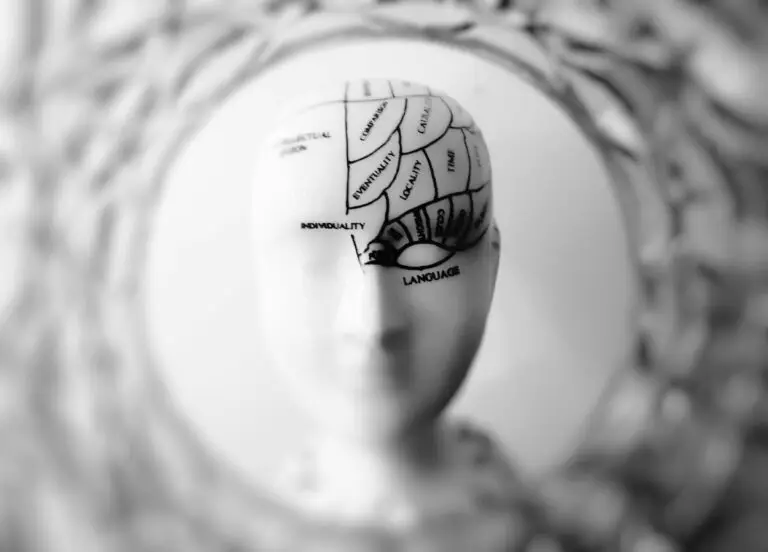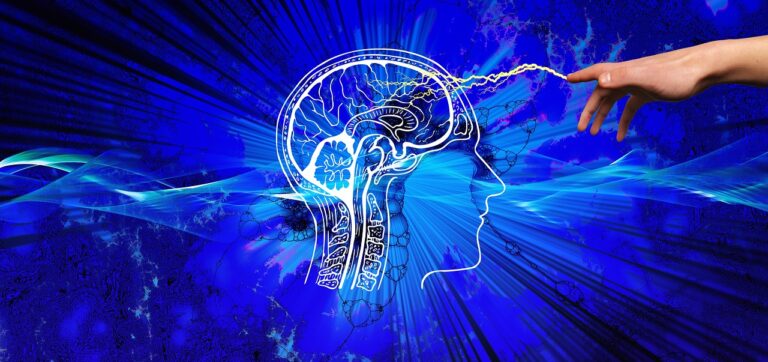52 Interesting Facts About Psychology Discover the Weird World
Table of Contents
Toggle52 Interesting Facts About Psychology You Need to Know
The term psychology originates from the Greek words “psyche” (soul or spirit) and “logia” (study). As the scientific study of the human mind and behavior, psychology explores our thoughts, emotions, and actions. From understanding mental health to unraveling the mysteries of the human brain, psychology has endless insights. Here are 52 interesting facts about psychology that shed light on our inner workings and behaviors.
The Science of Human Behavior

- Dopamine Fuels Curiosity: Dopamine, often called the “pleasure chemical,” also makes us addicted to seeking information—explaining why we scroll endlessly on social media.
- Love is Biochemically Like OCD: Falling in love shares similar brain activity with obsessive-compulsive disorder due to reduced serotonin levels.
- False Confessions Are Possible: With suggestive questioning, people can be convinced they committed a crime they didn’t.
- Morning vs. Night Owls: Your genes determine whether you’re an early riser or a night owl, a concept known as “chronotype.”
- Loneliness Hurts Like Smoking: Prolonged isolation increases the risk of heart disease and is as damaging as smoking 15 cigarettes a day.
- Yawning Signals Empathy: “Catching” someone’s yawn is an unconscious way of showing emotional connection.
- Humans Are Bad at Multitasking: The human brain can focus on only one complex cognitive task at a time.
- Creativity Thrives at Night: People tend to be more imaginative when they’re tired, as the brain becomes less inhibited.
The Human Brain and Memory

- Short-Term Memory Limitations: Visual data stays in short-term memory for only 20–30 seconds unless reinforced.
- Emotions Shape Memories: Emotionally charged events are stored vividly in long-term memory.
- Zeigarnik Effect: Unfinished tasks remain in our minds more vividly than completed ones.
- Chewing Gum Boosts Focus: Chewing gum improves concentration and cognitive performance, especially during challenging tasks.
- Forgetting Helps Efficiency: Forgetting unimportant details allows the brain to prioritize critical information.
- Chunking Enhances Recall: Grouping information into smaller clusters helps improve memory retention.
- Dreams Reflect Reality: Dreams often use real-life faces we’ve seen but may not consciously remember.
Cool Psychology Facts About Emotions and Relationships

- Heartbreak Hurts Physically: Emotional pain, like heartbreak, triggers physical symptoms, mimicking stress cardiomyopathy.
- Proximity Builds Love: People are more likely to fall in love with those they see frequently, known as the “proximity effect.”
- Long Hugs Build Trust: A 20-second hug releases oxytocin, enhancing emotional bonding.
- Crying Tells the Reason: Tears from happiness fall from the right eye first, while sadness starts in the left.
- Love Lasts 4 Minutes: Research shows it takes only 4 minutes to decide if you’re romantically interested in someone.
Interesting Psychology Insights About Mental Health

- Rejection Equals Physical Pain: The brain processes social rejection similarly to actual physical pain, triggering discomfort.
- Cognitive Dissonance: Contradictory beliefs cause mental tension, prompting people to adjust their thoughts or actions.
- Schizophrenia and Blindness: People born blind are less likely to develop schizophrenia.
- Negative Words Hurt More: One negative comment can overshadow five positive memories.
Dreams and the Subconscious Mind

- REM Paralysis: During REM sleep, your body becomes temporarily paralyzed to prevent acting out dreams.
- Symbolism in Dreams: Dreams often represent metaphorical meanings rather than literal events.
- Most Dreams Are Anxious: Anxiety is the most common emotion experienced in dreams.
- Reading in Dreams is Rare: Reading requires conscious brain activity, making it nearly impossible in dreams.
Social Psychology and Group Dynamics

- Bystander Effect: People are less likely to help in emergencies if others are present, assuming someone else will step in.
- Actor-Observer Bias: We attribute others’ failures to internal faults but blame our failures on external factors.
- Group Conformity: People often go along with group decisions, even if they disagree privately.
- Crowd Mentality: Large groups tend to make poorer decisions than smaller ones.
Physical and Mental Connections

- Laughter Heals: Laughing reduces stress hormones and improves both mental and physical health.
- Exercise Slows Brain Aging: Regular physical activity delays neurological decline by up to 10 years.
- Sleep Cleans the Brain: During sleep, cerebrospinal fluid removes toxins from the brain, aiding memory consolidation.
- Stress Impacts Memory: High stress levels impair working memory, making it harder to focus and retain information.
Fascinating Love Psychology
- Love is Addictive: Romantic love activates the same reward systems in the brain as addictive substances.
- Blind Love: When in love, people idealize their partners and overlook flaws—a bias known as the “halo effect.”
- Romantic Bonds Reduce Pain: Thinking of a loved one can reduce physical pain through emotional regulation.
- Shared Interests Matter: People are drawn to partners with similar values and habits.
Psychological Fun Facts About Daily Life
- Money Buys Limited Happiness: Wealth improves happiness only up to a point; relationships and experiences matter more.
- Smiling Tricks the Brain: Smiling, even when forced, can boost mood by releasing serotonin and dopamine.
- Negativity Bias: Our brain gives more weight to negative experiences than positive ones.
- Sarcasm Boosts Intelligence: Understanding sarcasm engages complex thought processes, enhancing creativity.
The Importance of Social Media and Technology
- Social Media Addiction: Platforms like Facebook and Instagram are designed to keep you hooked using dopamine-driven feedback loops.
- Phantom Vibrations: Many people experience “phantom phone vibrations,” a psychological phenomenon caused by dependency on technology.
- Comparisons Hurt Mental Health: Constantly comparing yourself to others on social media harms self-esteem and increases anxiety.
- Digital Detox Benefits: Taking breaks from technology significantly improves mental health and sleep quality.
Cool Psychology Facts About Education
- Learning Creates New Neurons: Gaining new skills increases gray matter in the brain, improving cognitive abilities.
- Quizzes Improve Memory: Testing yourself helps retain information better than simply reviewing notes.
- Color Impacts Focus: Blue boosts productivity, red grabs attention, and yellow enhances happiness.
- The Brain Loves Goals: Breaking large tasks into smaller steps gives the brain motivational boosts.
Why a Degree in Psychology Matters
Pursuing a degree in psychology allows you to explore human behavior, tackle mental health challenges, and gain a deeper understanding of how the human brain works. Whether it’s analyzing health conditions or finding cool psychology facts, the field offers endless opportunities to make a meaningful impact.
Conclusion
Psychology is a fascinating subject that reveals the complexities of human behavior, mental health, and the workings of the human brain. From understanding how social media affects us to exploring why love is biochemically like an addiction, these interesting facts about psychology show how deeply interconnected our minds and bodies are. Embracing this knowledge can help us live healthier, happier, and more fulfilling lives.
FAQs: Interesting Facts About Psychology
Q1: Are psychology facts true?
Yes, psychology facts are derived from research and studies conducted by experts in the field. They are based on scientific evidence and help us understand human behavior, mental processes, and the human brain more effectively.
Q2: Did you know facts about psychology?
Here are a few intriguing psychology facts:
- Dopamine makes you addicted to seeking information, explaining why social media is so addictive.
- Love is biochemically similar to obsessive-compulsive disorder, involving reduced serotonin levels.
- People can be convinced they committed a crime they didn’t within hours of suggestive questioning.
Q3: What are 5 interesting facts about psychology?
- Loneliness is as harmful as smoking 15 cigarettes a day.
- Emotional pain is processed in the brain like physical pain.
- Your brain uses 20% of your body’s energy even though it only weighs 3 pounds.
- Negative comments outweigh positive ones, affecting memory and emotions.
- Dreams last 5-20 minutes, even though they may seem longer.
Q4: What are some interesting facts about psychology?
Some interesting facts about psychology include:
- People born blind don’t develop schizophrenia.
- Multitasking is a myth; the brain can focus on only one cognitive task at a time.
- Smiling releases serotonin and dopamine, even if forced, improving mood.
Q5: What are interesting facts about psychology?
Psychology reveals fascinating insights into human behavior. For example:
- Yawning is contagious and signals empathy.
- Chewing gum boosts memory and focus.
- The proximity effect explains why we fall in love with people we see often.
Q6: What are some interesting facts about clinical psychology?
Clinical psychology focuses on mental health and well-being.
- Cognitive-behavioral therapy (CBT) is highly effective for treating anxiety and depression.
- Trauma and stress disorders can affect brain chemistry but are treatable with professional help.
- Many clinical psychologists research ways to bridge the gap between physical health and mental illness.
Q7: What are some interesting facts about forensic psychology?
Forensic psychology merges psychology and law:
- It helps in creating criminal profiles and solving cases.
- Studies show that false memories can be implanted, making someone believe they committed a crime.
- Forensic psychology has been instrumental in catching serial killers like Jeffrey Dahmer.
Q8: What are some interesting things about psychology?
Psychology uncovers truths about human behavior:
- Stress impacts memory and decision-making.
- The brain processes rejection as physical pain.
- Social media fosters dopamine loops, keeping users addicted.
Q9: What is the most interesting thing about psychology?
One of the most interesting aspects of psychology is how it connects mental and physical health. For example, laughter reduces stress hormones, improving overall well-being.
Q10: Are psychology facts real?
Yes, psychology facts are supported by scientific studies and evidence. These facts are gathered through research into how the human brain and mind work.
Q11: What are some interesting facts about psychologists?
Psychologists do more than listen:
- They use evidence-based therapies like CBT and exposure therapy.
- Psychologists can’t prescribe medication (except in a few states with special training).
- They study human behavior to solve complex societal problems.
Q12: What are some interesting facts about psychologists?
- Psychologists undergo rigorous training, including earning a doctorate in psychology.
- They specialize in areas like neuropsychology, clinical psychology, and forensic psychology.
- They help people understand mental illnesses and improve their lives.
Q13: What is an interesting fact about psychologists?
One interesting fact is that psychologists study both behavior and brain function, using this knowledge to treat mental health issues, improve education, and develop workplace strategies. Some even specialize in profiling for criminal investigations.
Related Posts
- 3 Surprising Facts About Dolphin Class or Kids
- Discover 14 Jaw-Dropping Galaxy Facts You Never Knew Existed
- Discover 12 Jaw-Dropping Neptune Facts You Never Knew Existed
- 10 Unique Facts About Cats You’ve Never Heard Before
- Astrology and Relationships: Unlocking the Secrets of Cosmic Connections
- Editorial Policy
- 10 Surprising Facts About Love and Attraction
- About Us
- Privacy Policy
- Disclaimer
- 50 Mind-Blowing Fun Facts for Kids That’ll Make Their Jaws Drop
- Discover 11 Jaw-Dropping Saturn Facts You Never Knew Existed





